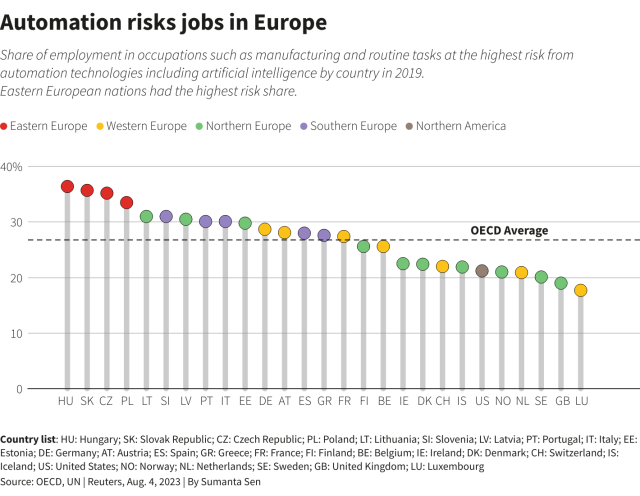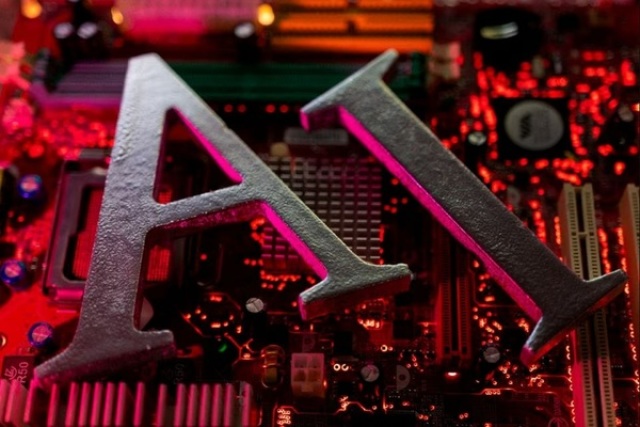The invention of the plow in the Middle Ages did not help European peasants get out of poverty. To a large extent, this happened because their rulers used the wealth gained as a result of increased production to build cathedrals. Economists say that something similar can happen to artificial intelligence (AI) if it enters our lives in such a way that the advertised benefits will be available only to a select few.
"AI has a lot of potential, but it can work in any direction," says Simon Johnson, professor of global economics and management at the Sloan School of Management at the Massachusetts Institute of Technology.
Proponents of artificial intelligence predict a jump in productivity that will lead to an increase in well-being and an increase in living standards. Consulting company McKinsey estimated in June that the global economy could add from $14 trillion to $22 trillion annually — this upper figure roughly corresponds to the current size of the US economy.
Some techno—optimists go even further, suggesting that AI, along with robots, is a technology that will finally free humanity from routine tasks and open up to us a life full of creativity and leisure.

Nevertheless, there are many concerns about its impact on livelihoods, including its potential destruction of jobs in all sectors — for example, in July there was a strike of Hollywood actors who fear that they will be replaced by artificial intelligence counterparts, and they will be fired.
Such fears are not unfounded. History shows that the economic impact of technological progress is usually uncertain, uneven, and sometimes frankly detrimental.
A book published this year by Johnson and fellow MIT economist Daron Acemoglu examines the millennial history of technology-from the plow to automated self—service kiosks—in terms of their success in creating jobs and spreading wealth.
Although Jenny's spinning wheel was the key to the automation of the 18th century textile industry, they found that it led to longer working hours in harsher conditions. Mechanical cotton gins contributed to the spread of slavery in the 19th century in the South of America.
The Internet's track record is complicated: it has created many new jobs, despite the fact that most of the wealth created went to a handful of billionaires. Productivity growth, for which he was once praised, has slowed down in many countries.
A June report by the French bank Natixis says that this was due to the fact that even such a widespread technology as the Internet left many sectors untouched, while many of the jobs it created were low-skilled — think of the online shopping delivery chain.
"Conclusion: we must be careful when assessing the impact of artificial intelligence on labor productivity," Natixis warned.
In a globalized economy, there are other reasons to doubt that the potential benefits of AI will be felt evenly.
On the one hand, there is a risk of a "race to survival" as governments compete for investment in AI with increasingly lax regulation. On the other hand, the barriers to attracting these investments may be so high that many poorer countries will be left behind.
"You have to have the right infrastructure — huge computing power," said Stefano Scarpetta, director of employment, labor and social affairs at the Paris—based Organization for Economic Cooperation and Development (OECD).
Innovation, as it turned out, is the simplest. It's harder to make it work for everyone — and that's where politics comes in.
The advent of railways in 19th-century England at a time of rapid democratic reforms allowed a wider society to take advantage of these advances, whether through faster transportation of fresh produce or the first vacation trips.
Similar democratic gains in other countries helped millions of people enjoy the fruits of technological progress until the 20th century. But the situation began to change with the aggressive equity capitalism that has characterized the last four decades.
He claims that an automated self-service checkout is an example of this. Products are not getting cheaper, customers' lives are not being transformed and new tasks are not being set — only making a profit from reducing labor costs.
Working groups that have lost much of the influence they had before the 1980s consider AI to be a potential threat to workers' rights as well as employment, for example, if there is no human control over hiring and firing decisions made under AI control.
Mary Towers, a policy specialist in the field of labor rights at the Congress of Trade Unions of Great Britain, noted the importance of trade unions "having statutory rights to consult, having the opportunity to collectively negotiate technologies at work."
This is just one of several factors that will help determine how AI shapes our economic life — from antitrust policies that ensure healthy competition among AI suppliers to retraining of the workforce.
The question is, will AI exacerbate existing inequality or will it really help us get back to something fairer?

